This is a long post, so buckle up! There are a lot of photos and a couple of videos, so the email might cut off. If you click the link at the bottom of the post, it should open it up in full for you.
Back in 2018, my grandad was ailing. We’d spoken in the past about me keeping bees or chickens in my grandparent’s garden, since I didn’t have a garden of my own. Both my grandparents decided bees would be better and I duly signed up for my local beekeeper’s association (EMBA - the Edinburgh & Midlothian Beekeeper’s Association) training programme. Time felt of the essence. 9 weeks later, with weekly theory and practical classes under my belt, I set about acquiring my first colony of bees. I bought them from EMBA and they came with a mentor, someone I could send panicked messages when the bees weren’t behaving as I expected. My grandad built my first hive for me, and the colony moved into their new home.
That autumn, my grandad passed away, peacefully in his sleep, after a day in the garden, dinner with friends and a whisky night cap. I’m forever grateful I didn’t delay getting the bees, I’m the kind of person who will put off a big decision like that because it’s a brand new hobby solely for me. It would involve spending money and time on something purely for joy, which is the kind of thing I procrastinate, because there’s always something more productive to be doing with your time or money. If I’d waited any longer, I would have missed out on those magical last moments with my grandad, building the hive together and seeing his joy in the bees at the bottom of his garden. I included part of a poem by Eugene Field called “Telling the bees” at his funeral. Folk lore states that a beekeeper should keep the bees informed of any life events, both happy and sad, that happen in the local area. It keeps the bees in the loop, and thus more bonded to the location, and less likely to swarm.
The bees came through their first winter well and then, despite my best efforts to the contrary, promptly swarmed. Shows what folk lore knows. Once into the rowan tree over my grandparent’s greenhouse (I had to recruit the neighbour to help me retrieve them, as my gran was away at the time), and then a second time into said neighbour’s apple tree. Both times I managed to collect them, but it was a stressful situation and I’m very thankful to the tolerance of Liz the neighbour! The photo below shows the bees in the process of being encouraged into a nucleus box, a small temporary home for them after swarming. Assuming you’ve caught the queen bee (who is hopefully in the box), the rest of the bees should follow. In theory.
Every time the bees swarm, if you can catch them, you end up with another colony of bees. By the time the end of summer 2019 rolled around, I found myself with three colonies. Multiple panicked trips to Thornes, the local bee shop, plus a purchase of two additional hive stands, meant I was also considerably poorer since starting my beekeeping journey. Somehow, the excitement and joy of keeping bees, meant the money felt like less of a concern. There’s some money to be clawed back by selling additional colonies you don’t want to keep, but I did this once and felt dirty afterwards. The bees aren’t mine to trade, they’re essentially a wild animal who has chosen to live in the house you provide. I don’t think I’ll sell additional colonies in the future, donating them to a local beekeeping association for their teaching seems like a better way to pass on the bounty of bees.
Back to my colonies. We had our first honey harvest, and I invited my EMBA bee pal, her husband and 3 kids over to my gran’s house to harvest our respective honeys together. My parents were visiting at the time and the combo of 6 adults, 3 kids and 3 dogs created a real feel of jeopardy at times! Harvesting honey is a messy job but we bottled enough honey that it took me two years to get through my portion, despite gifting away over half of the total. From the top of the series of five images above, you remove the honey frames from the hive, then cut away a thin layer of wax on either side to release the honey. The frames are loaded vertically into a spinner, which is turned manually by handle. The kids loved this bit and we made up some Dwarven-esque honey harvesting songs as we went. The honey flies out of the frames via centrifugal force, runs down the inside of the spinner and collects in the bottom. You then use the spout to pour the honey into your sterilised jars. There’s a real culture of ‘make do and mend’ amongst beekeepers, it’s a point of pride to make or reuse something instead of buying it. I’d collected jars for months hoping for this moment to harvest my honey. All my bees hard work, plus my study, mistakes, tears, and stung fingers come to fruition.
EMBA encourages their trainees to sit Scottish Beekeeping Association exams, to keep you learning and reading. I sat my Basic Beekeeping certificate in the autumn and very proudly came away with distinction. It was a good opportunity to bring together all my lessons, both theoretical and practical, in one nice summary. Plus, this perfectionist over achiever loves an exam.
Sadly, my bees didn’t survive the winter 2019 - 2020, which in some ways was a blessing. Managing lockdown with my elderly gran (who at the time was waiting on a heart operation), needing to check bees at the bottom of her garden when social distancing wasn’t something of which she was overly observant, would have been a stressful nightmare. I cleaned and packed away my kit and sent a prayer of thanks to the bee gods that things had worked out the way they had. The bees had had multiple issues producing a new queen towards the end of the summer 2019, and despite my best efforts, had gone into the winter potentially queenless and too small. The colony needs to be a critical mass to survive the winter and mine were too weak. They drifted away and I reflected and learned some valuable lessons for next time.
I hadn’t planned to get bees again so soon, we’ve been discussing moving away from Edinburgh for a few years so the time didn’t feel right. But sometimes bee karma works out and my friend Moira from EMBA, had a spare colony towards the end of the summer 2023. I did a quick refresh of my textbooks and installed the colony at the bottom of my gran’s garden. My dad and I had built a fence around the apiary, to keep the dogs out, and the bees seemed happy in their new home. They were quite a small colony and I was worried they had quite a high mite load, after treating them for Varroa (a type of mite that can contribute to them dying over winter) and getting a large amount of mites drop off them into the bottom of the hive. The colony seemed to dwindle over winter and I was convinced they were dying. My last check of them was in November 2023, when there were so few bees I figured there was no way they would make it through to spring. I closed up the hive, feeling faint pangs of guilt at the relief I wouldn’t have to deal with them the next season. We’d decided to move away in 2024 and the bees would have been another thing to organise before we left.
By some miracle, my gran noticed activity around the hive in March 2024. It turned out they had survived, and not only that, were thriving. We had formally announced we were leaving, so the hunt was on to find a replacement home for them, or a beekeeper to care for them. My gran was keen to keep them in the garden, she enjoys them coming and going, so I sent an email to EMBA to see if anyone might be interested in taking them on. A very experienced beekeeper called John stepped forward, and the bees appear to be thriving under his care. During our first check together, there was evidence of swarming, so John split the colony in two to avoid losing half to a swarm. The two colonies are now happily living at the bottom of my gran’s garden, and John has named the two queen bees Amy and Ellie, after me and my gran. The latest report sounds like he might even get honey off them, which would be incredible given I was convinced they were dying last winter.
At some point, once we’re settled in Inverness, I would love to get bees again. To be able to stroll down the garden and observe the bees coming and going is such a joy. The smell of the shed holding the bee equipment, like wood smoke and honey and wax, it’s a quintessential smell of summer once you’ve experienced a season of beekeeping. The honey is obviously an amazing bonus, but it’s not essential. To be part of the natural seasonal cycles of life is the real joy, in my opinion. In the meantime, I’m glad my bees are bringing delight to my gran, for as long as she can enjoy them


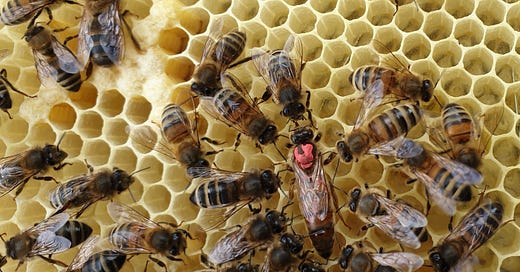


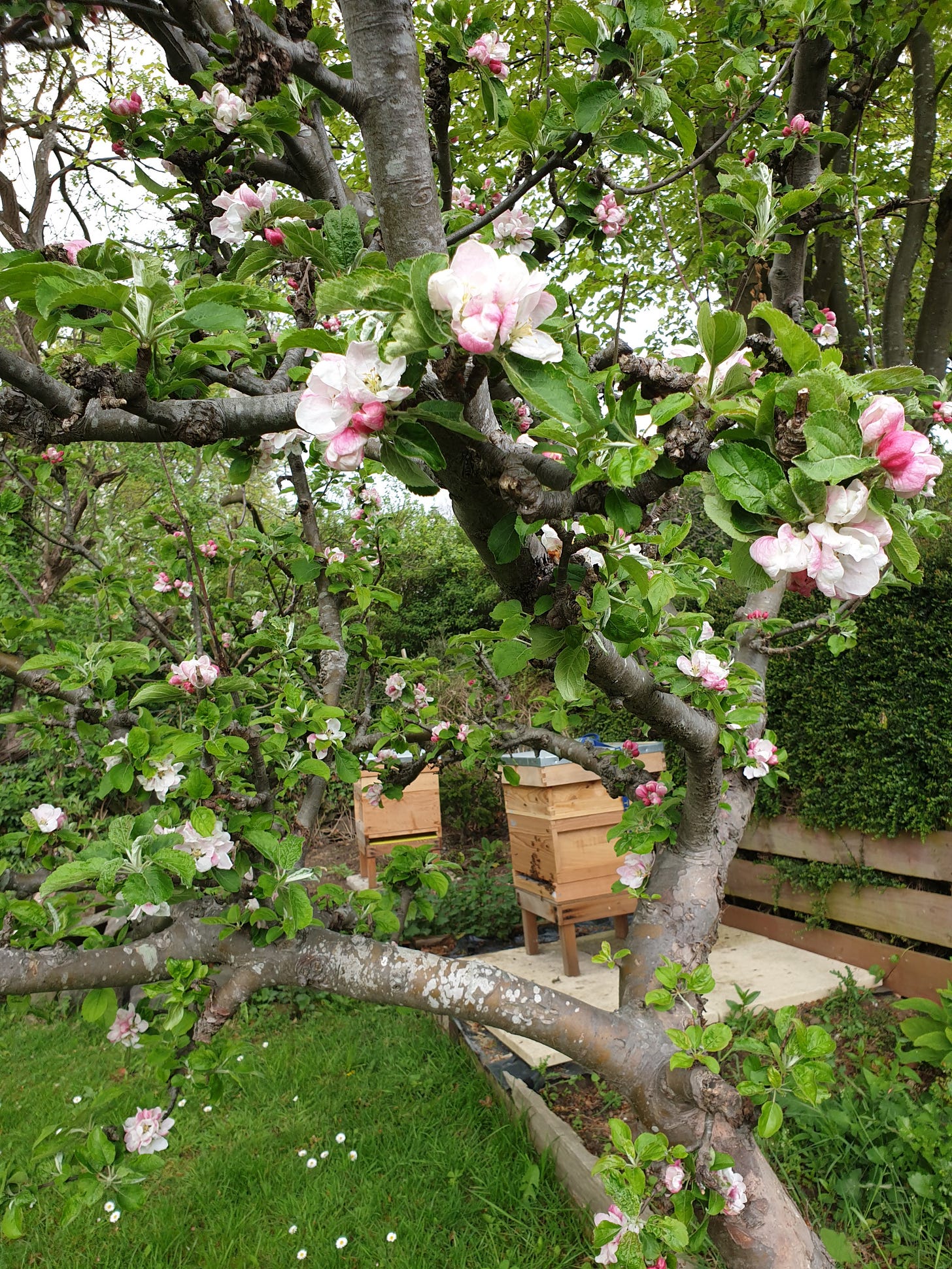
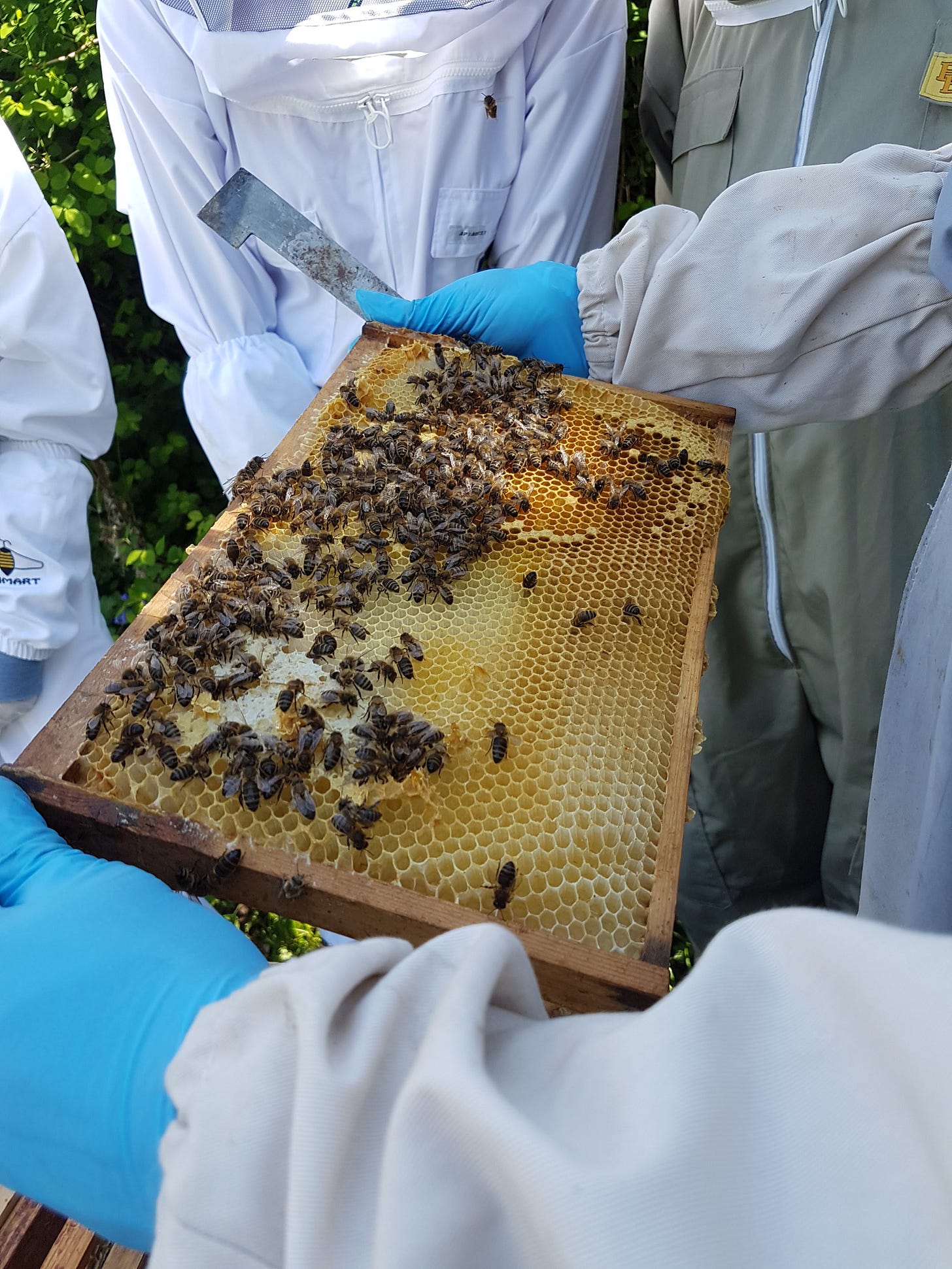
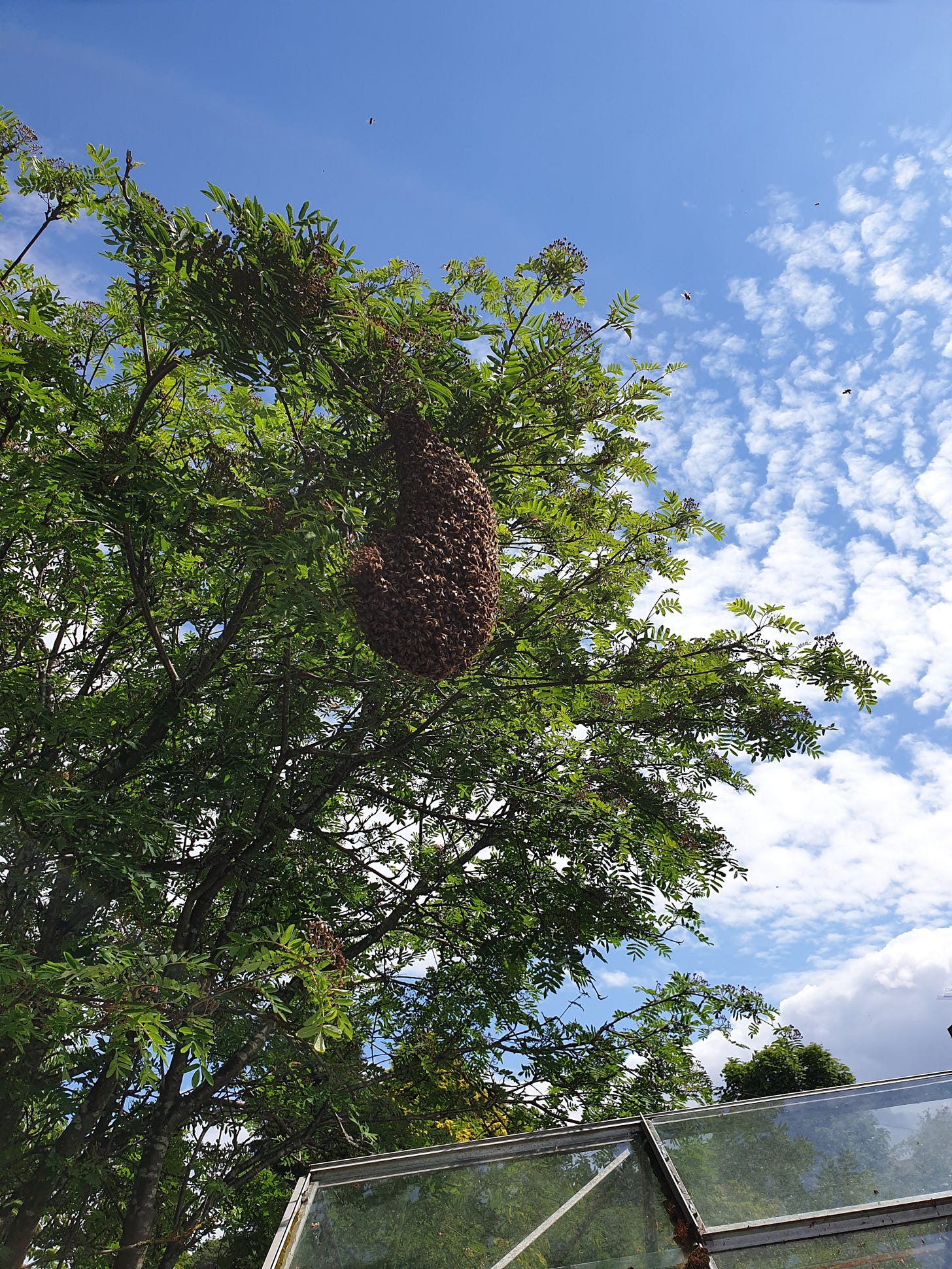
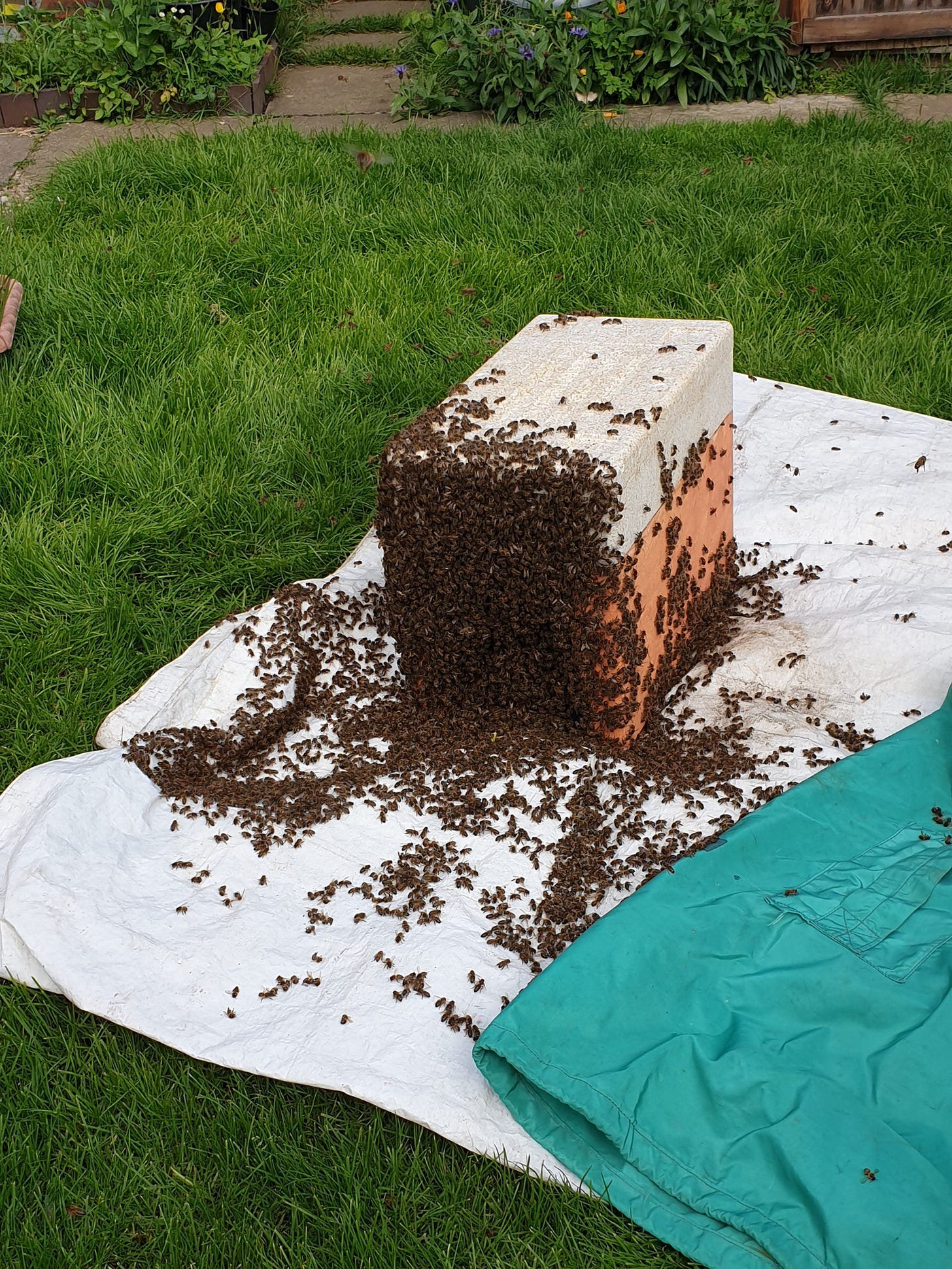
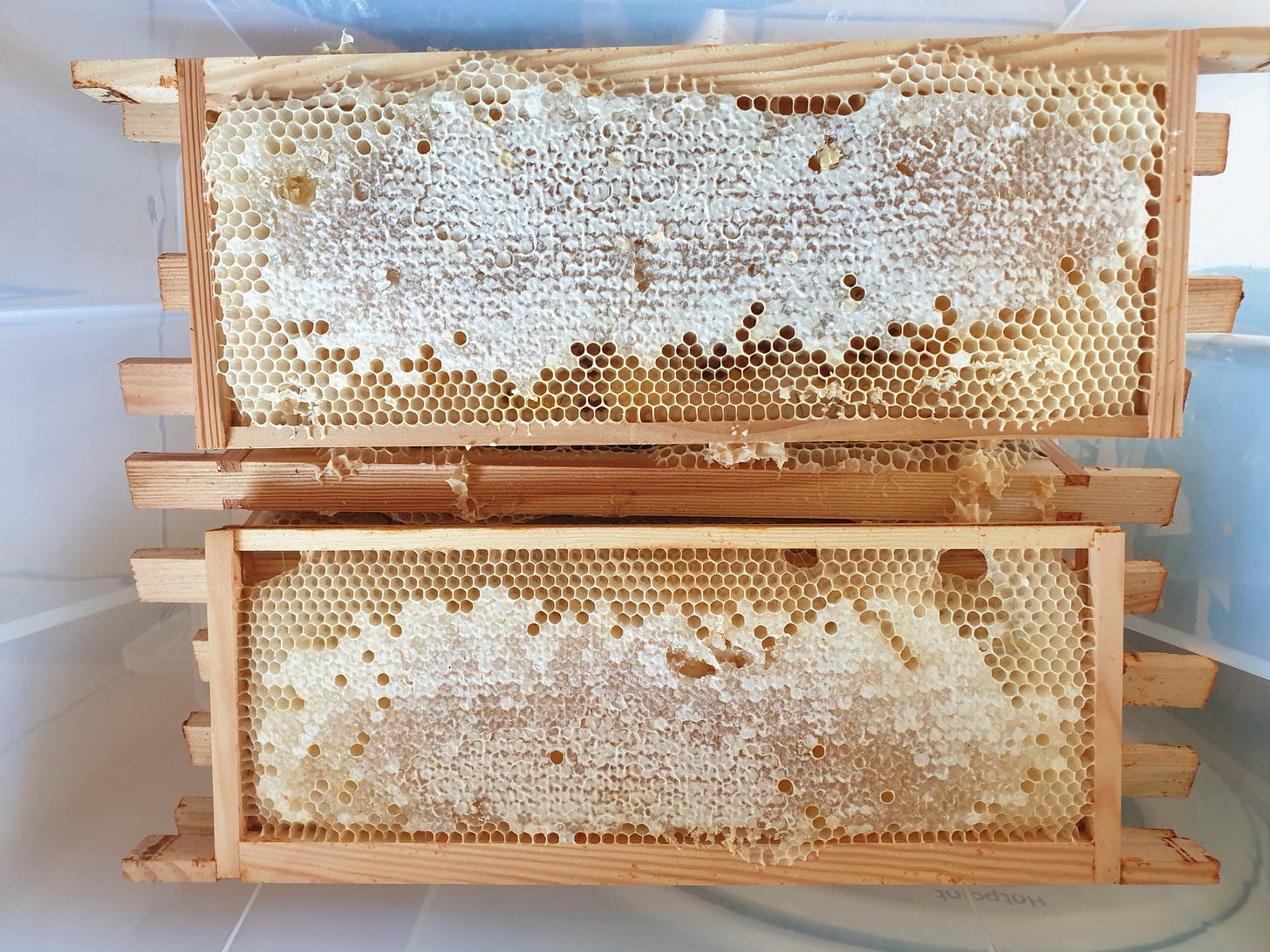

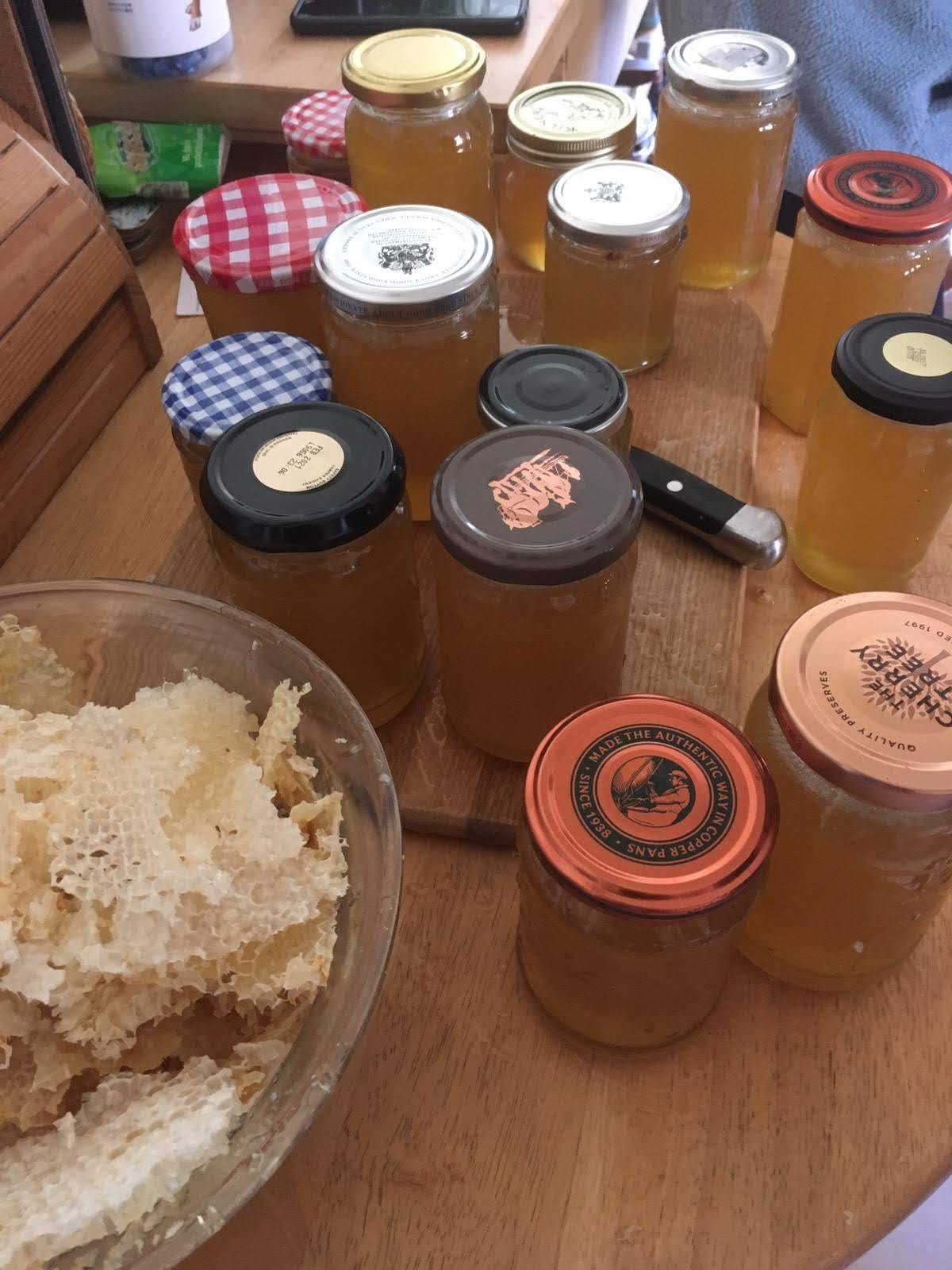
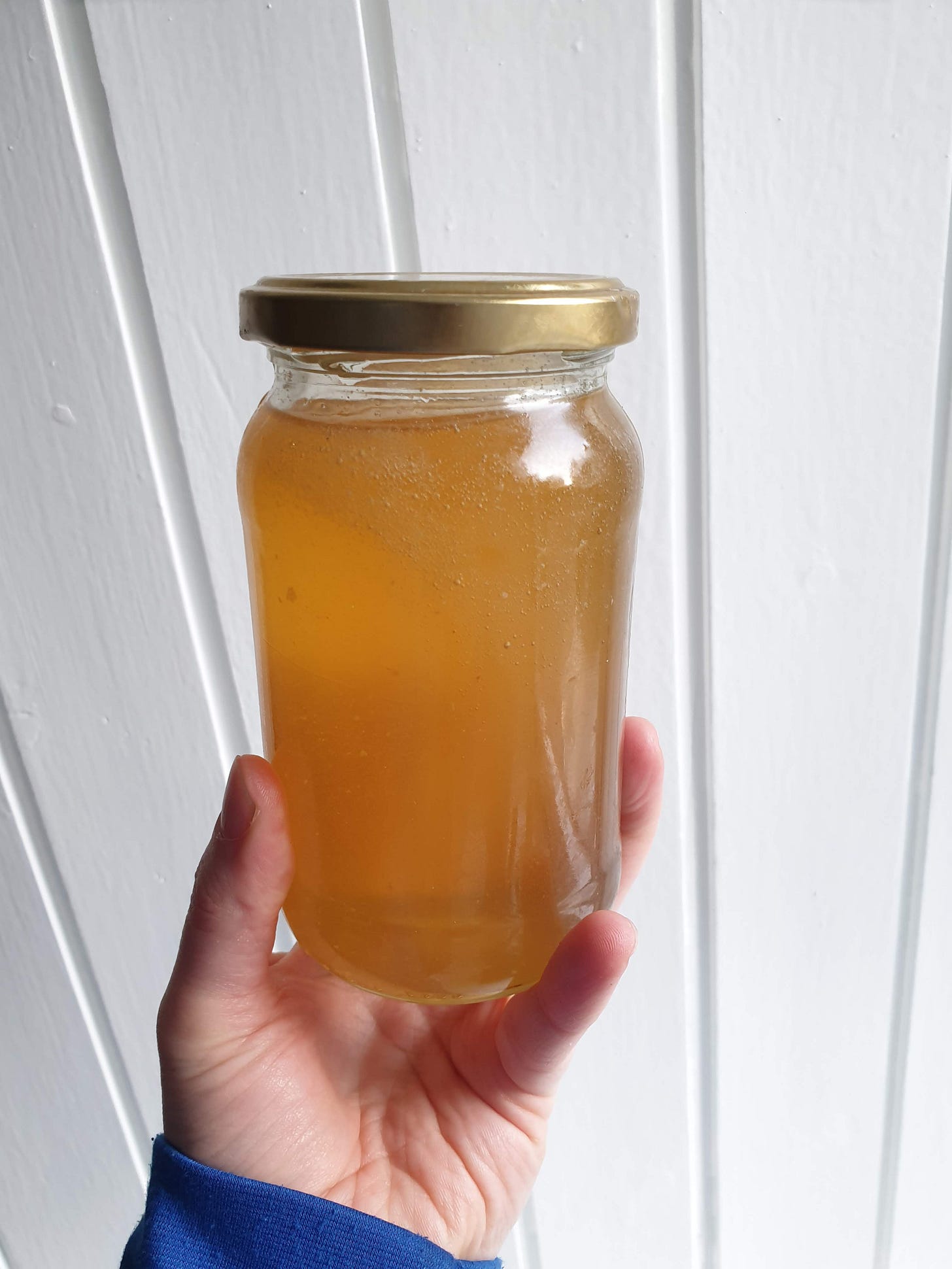
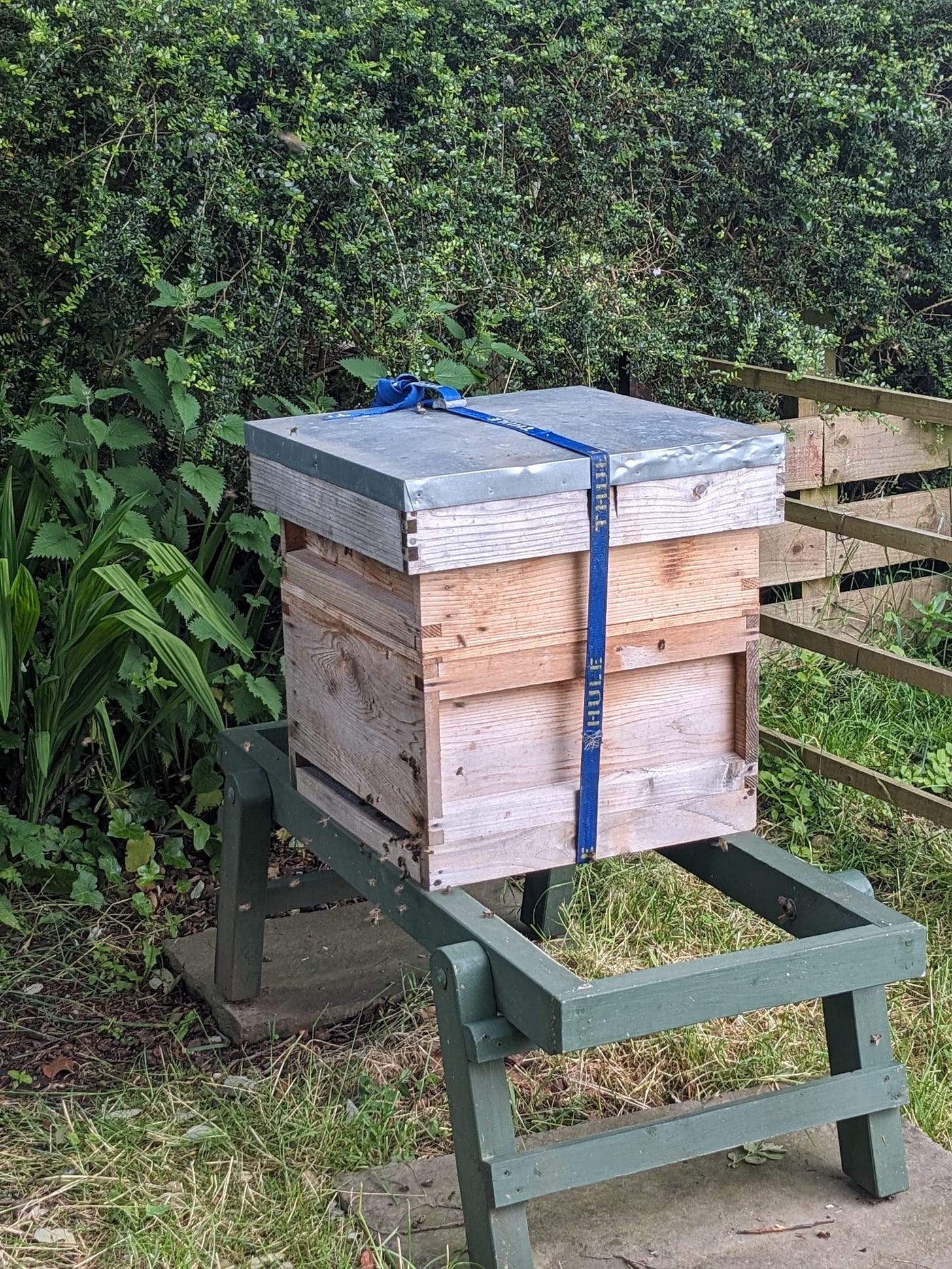
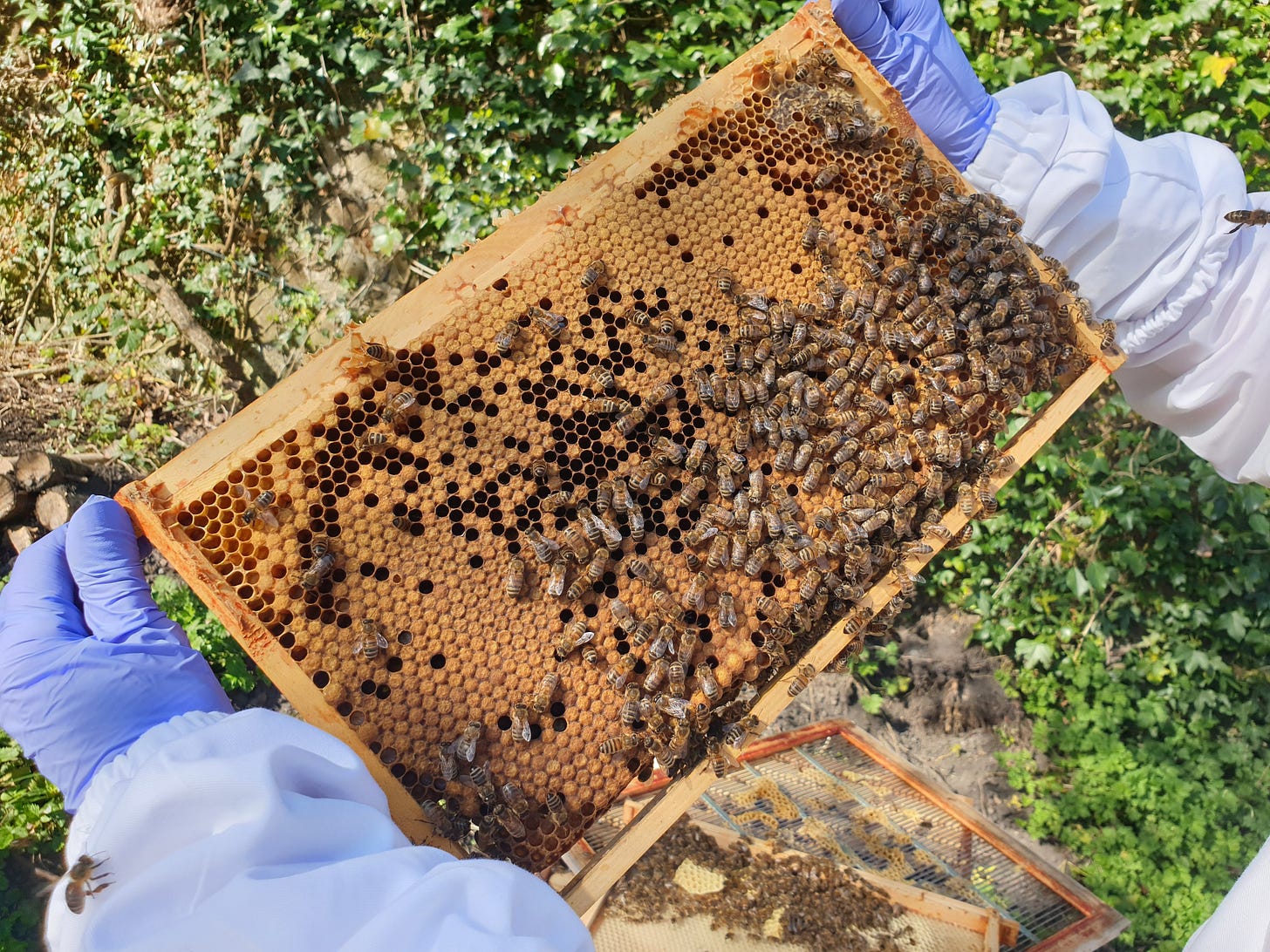
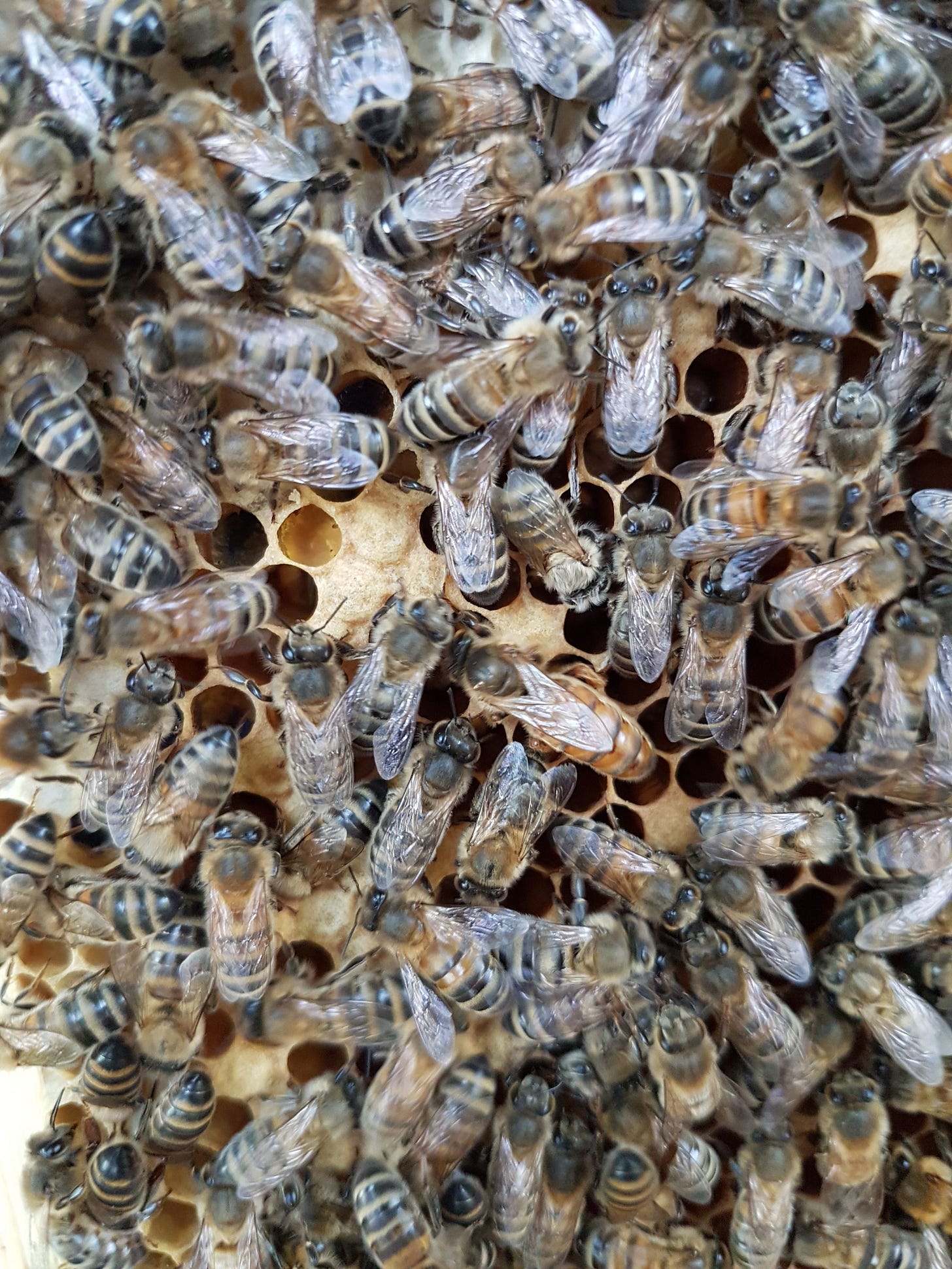
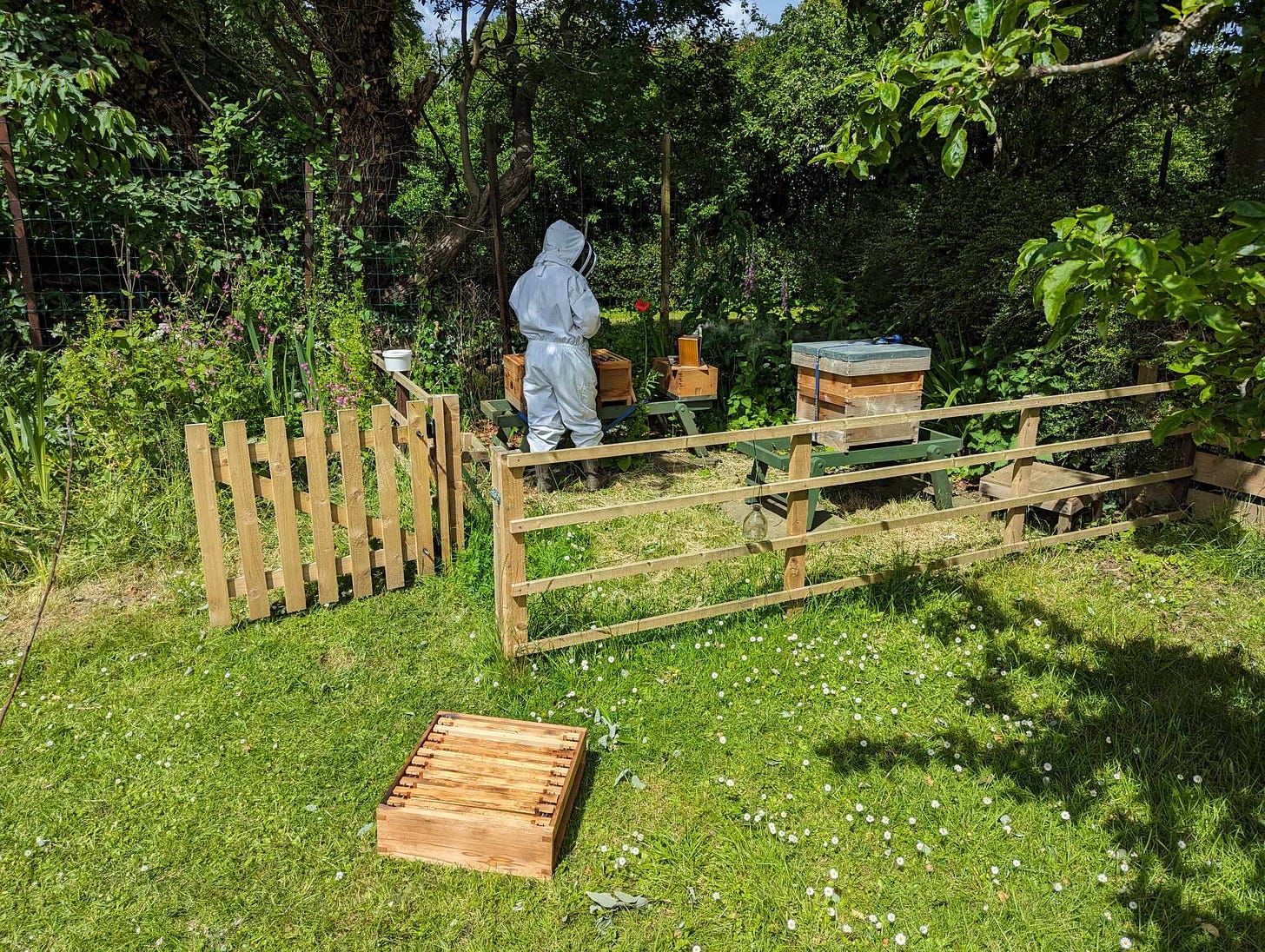
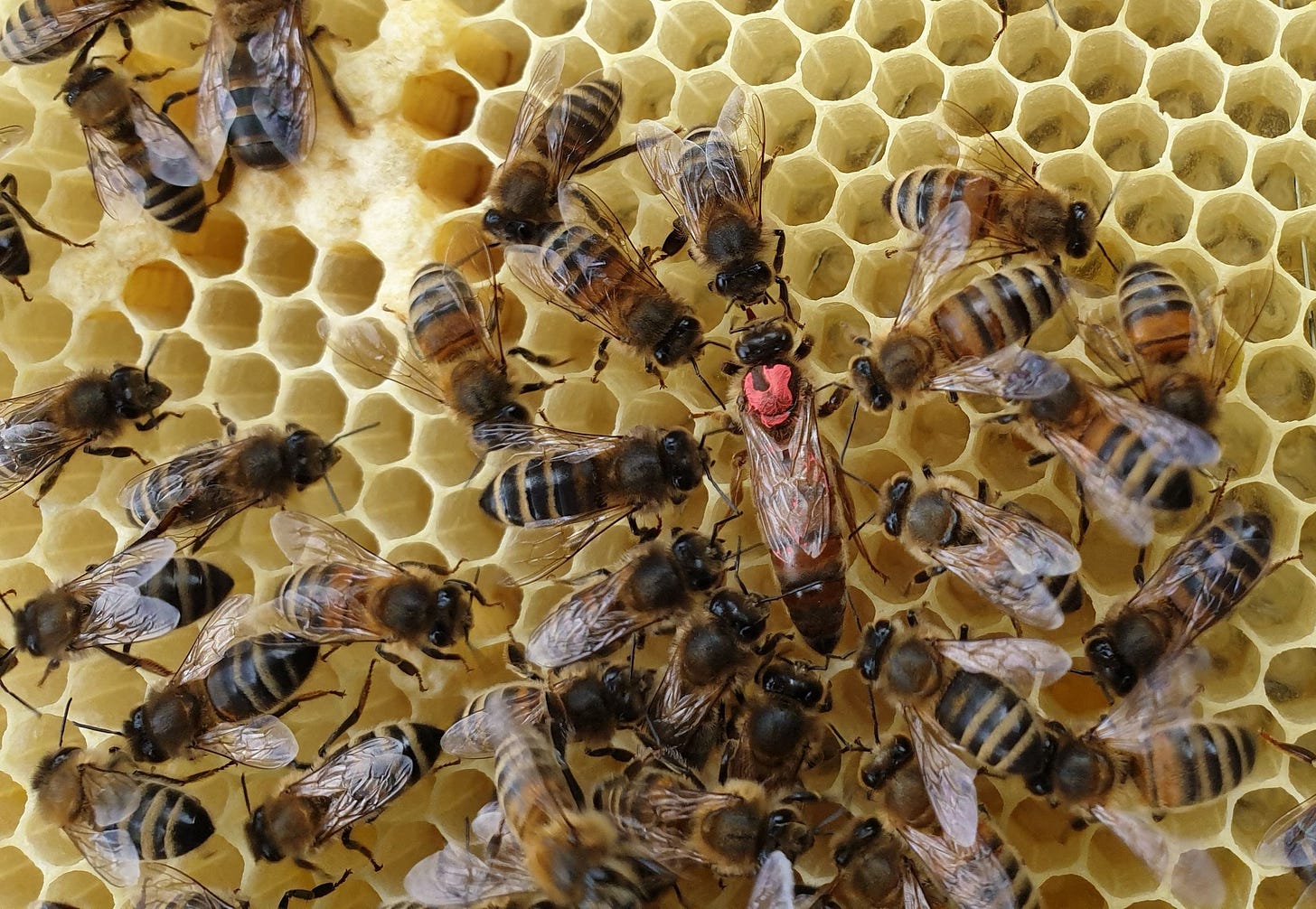
This is lovely! 🐝